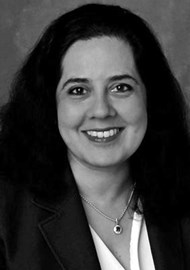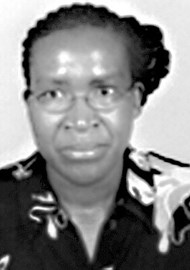In certain cultures, it is even more difficult for women to establish roles in leadership due to the pressures put upon them by society to take care of the home and family, often in lieu of furthering their education and careers. Dr Joyce Aswani overcame these barriers with the support of her friends and family to become the Thematic Head for ORL-HNS at the University of Nairobi in Kenya. Sujana Chandrasekhar caught up with Joyce to discuss the challenges she faced during this journey, as well as her motivations and aspirations for the future.
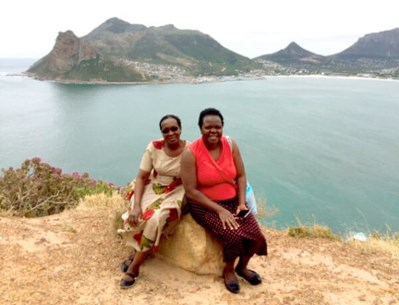
Dr Aswani (left) in Cape Town for an ultrasound course.
Dr Joyce Mmbone Aswani, an ENT Head and Neck Surgeon working as a Senior Lecturer in the Department of Surgery; and ENT Thematic Unit Head at the University of Nairobi, Kenya. She did all her training in Kenya with the exception of a one-year fellowship training in head and neck surgery at the University of Cape Town in 2006. At the Kenyatta National Hospital, she, together with colleagues from plastic and reconstructive surgery and maxillofacial departments, set up the first ever multidisciplinary working group in the hospital. As a team, they started operating on patients they would previously have passed on as inoperable.
The team has since grown to include other departments like ophthalmology and neurosurgery and continues to offer previously unavailable services. She has three adult children. In addition to her medical work, she is one of the founder members of a church-based savings and credit co-operative society to encourage the culture of saving. Through the society, both salaried and non-salaried members have had a chance to borrow money for development at low interest rates and without the need for collaterals as is the case with banks. Seeing how this has seen members achieve their desired goals gives Joyce a sense of satisfaction.
“As a leader, the society is more forgiving when a man errs than when it is a female”
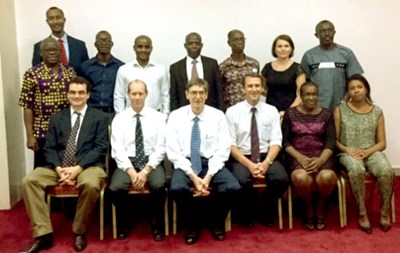
Africa Head and Neck Society meeting Accra, Ghana.
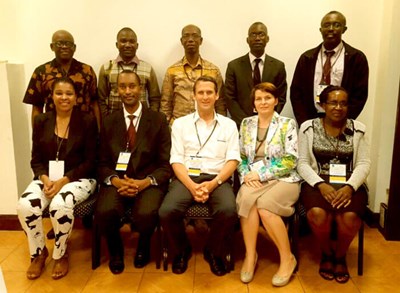
African Head and Neck Society meeting Kigali, Rwanda.
What barriers do you see for women otolaryngologists in Africa?
Barriers for women with regards to career begin in childhood where, in some African cultures, the girl child does not get as many opportunities as a boy. The girl has, from an early age, to set aside time to help with household chores while the boy child gets ample time to concentrate on schoolwork and play. In adulthood, much of raising the family falls directly on a woman’s shoulders. It is worse if you are a female doctor in a busy surgical discipline where you have to strike a balance between family life and career. As a leader, the society is more forgiving when a man errs than when it is a female. This fact therefore puts pressure on females in leadership positions. Luckily for me, I had parents who believed in me and gave me the necessary support and in my later life my husband has been very supportive.
“The playing field is what we make it – either to accept or reject what is fed to the mind”
What drives your success?
I was born and raised in a very humble family and the desire to improve our situation and touch the lives of those around me has always been my driving force. My parents, too, believed in me and gave me the necessary support in my earlier life, after which I was blessed with a very supportive and understanding husband. The support I have received from my family and friends is immense.
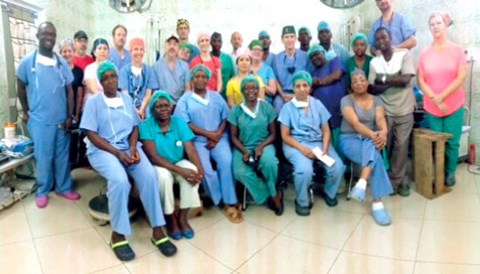
Head and neck camp in Malindi, Kenya.
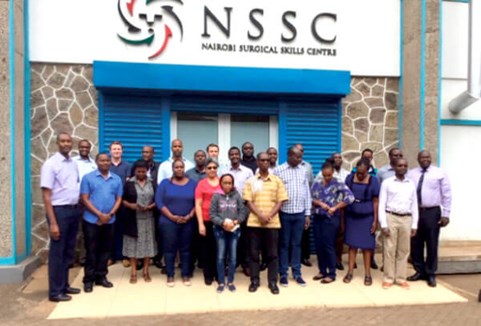
Head and neck course Nairobi, Kenya.
What do you think is needed for others to succeed in leadership?
All people need mentorship and/or sponsorship irrespective of gender. At the risk of contradicting myself, I must admit that there are scenarios that may call for more mentorship for females based on one’s background and culture.
“Being able to be a leader opens up more opportunities for me to serve”
Do you think the playing field is level now?
The playing field is what we make it – either to accept or reject what is fed to the mind. This should help society to eventually change how it views and treats those it perceives as weaker or inferior.
What makes you happy about being an otolaryngologist and a leader? What is your wish for the future?
My happiness as an ENT-H&N surgeon stems from knowing that what I do impacts on the recipients of my services. Being able to be a leader opens up more opportunities for me to serve. Everything considered, I suppose I have used the opportunities opened to me in God’s timing and to the best of my ability as at the time. There is always room for improvement and so I hope to focus on the tasks that are yet to be accomplished and give them my best.
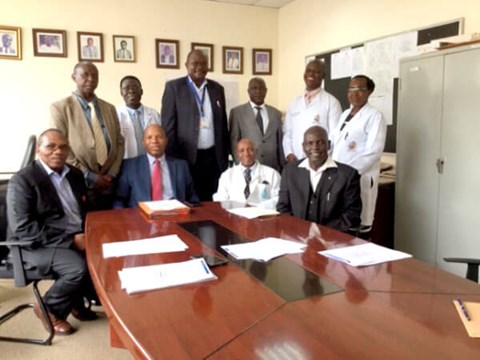
Department of surgery thematic heads and chairman, University of Nairobi.
What three pieces of advice would you give younger women with leadership aspirations?
The three main pieces of advice I would offer those needing mentorship would be:
- They are as good as their male counterparts and need to remain focused.
- Working hard pays.
- Humility and respect are key to success.


